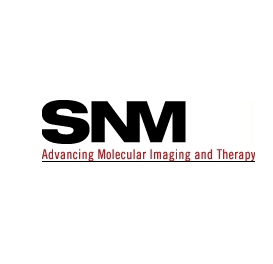by
Barbara Kram, Editor | September 26, 2007

SNM deeply involved
in nuclear issues.
RESTON, Va.- Based on the results of a recent National Academy of Sciences report, federal funding for basic molecular imaging/nuclear medicine research should be restored to the U.S. Department of Energy, says SNM, the world's largest society for molecular imaging and nuclear medicine professionals.
Funded by the Department of Energy and the National Institutes of Health, the 13-month, $700,000 report was prompted by a $23 million cut in funding from the DOE Office of Sciences' fiscal year 2006 budget, which effectively eliminated most money for basic nuclear medicine and molecular imaging research. The DOE has funded basic molecular imaging/nuclear medicine research since biomedical research was initially included in the Atomic Energy Act of 1954. "Advancing Nuclear Medicine Through Innovation" recommends that the federal government "enhance" its commitment to nuclear medicine research since "expanded use of nuclear medicine techniques has the potential to accelerate, simplify and reduce the costs of developing and delivering improved health care and could facilitate the implementation of personalized medicine."
"The loss of funding for nuclear medicine research in the U.S. Department of Energy budget has been a tremendous blow to-most importantly-our current and future patients and our field," said SNM President Alexander J. McEwan, who represents 16,000 physicians, technologists and scientists. "The NAS study confirms the importance of basic nuclear medicine research, and the society-with this report in hand-intends to convince Congress to continue its funding," said McEwan. "This is an exceptionally critical period for patients and medical imaging," said McEwan, "as SNM fights to reinstate research funding so future life-saving diagnostic and treatment procedures won't be lost." SNM is also advocating against the federal Deficit Reduction Act that limits patients' access to medical imaging by cutting reimbursement for many services that Medicare patients receive in physician offices and independent imaging centers, he added.



Ad Statistics
Times Displayed: 130474
Times Visited: 7410 MIT labs, experts in Multi-Vendor component level repair of: MRI Coils, RF amplifiers, Gradient Amplifiers Contrast Media Injectors. System repairs, sub-assembly repairs, component level repairs, refurbish/calibrate. info@mitlabsusa.com/+1 (305) 470-8013
If funding is not restored in the 2008 fiscal year, it will be detrimental to researchers and their labs. This is the only federal government research money dedicated to basic nuclear medicine research, and there are no plans to move this research to another federal agency," explained Peter S. Conti, chair of SNM's Government Relations Committee. "Our country needs to invest in the basic scientific research necessary to develop future breakthroughs in nuclear medicine imaging and therapy that will allow for earlier detection and treatment of cancer and other serious illnesses," he added. If funds are not restored, Conti said, the devastating loss of money for research on diagnosing and treating diseases will be followed by a loss of funds to support the training of students and postdoctoral fellows to fill an expanding role of nuclear medicine in patient care.

